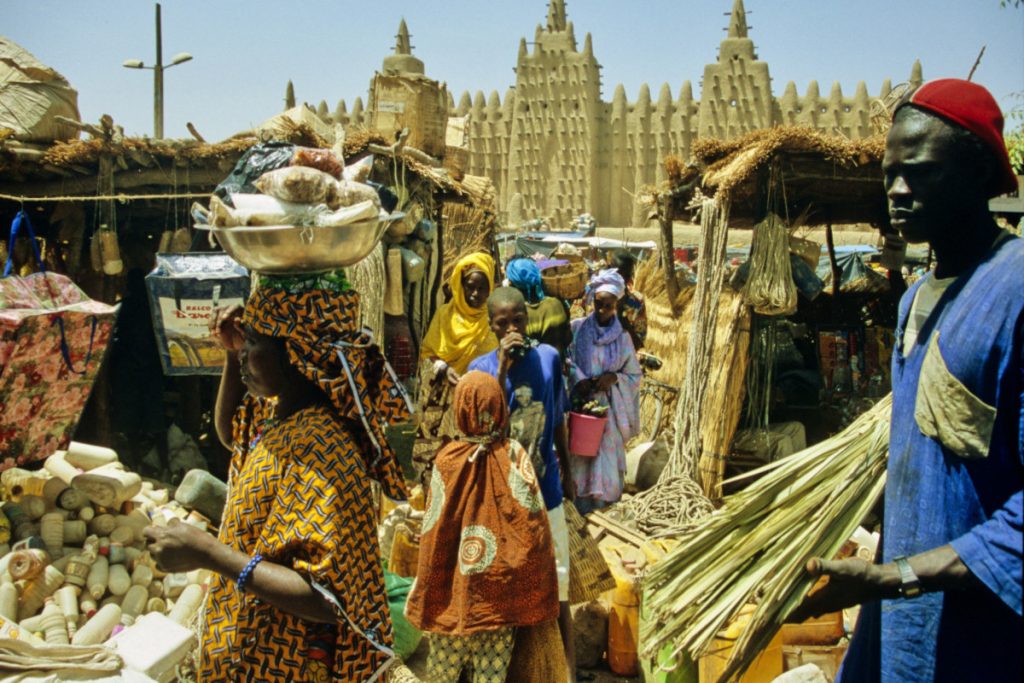
SHOP - the philosophy of markets
In the pre-modern era exchange of goods and services had been exclusively based on bartering, thus forcing peasants to provide exactly the kind of payment the seller was requesting. Alas, the buyer was forced to grow what the seller wanted, mostly wheat or cattle. Personal freedom only came with the introduction of monetary systems, as Georg Simmel argues in his famous “Philosophy of Money”. Suddenly, everyone was able to choose the preferred activity how to make a living. When I was traveling through Burkina Faso, I came across a tall, beautiful mango tree. In the shade of the tree, an open air market was in full swing. On the ground and on a few carpented tables, fruits, vegetables, spices, fish and some meat were on sale, as well as a choice of colorful textiles and some plastic household items, probably from China. An outspoken market lady was praising her cooked fufu.
The market was in the middle of the bush, albeit centrally located not far from several villages. Some clients arrived on their bicycles, others came by foot, walking several kilometers from their village to reach the market. A lady dressed in a colorful yellow dress with green stripes was buying cassava and yams, a young men with dreadlocks was clothing himself with a faked ManU Cristiano Ronaldo shirt. Next to the fufu stall, a knot of villagers was busy with exchanging gossip. Big laughter. Were they discussing which bachelor could be the ideal match for the pepped up young lady who was offering her tailoring services with her portable Singer sewing machine? Markets can be cobbled together like the one under the mango tree or an architectural marvel like the central market in Yerevan, can be colossal temples of consumption like Dubai Mall or entirely floating like Phung Hiep in the Mekong Delta. But wherever in the world there is a market, people come together, to choose their preferred activity, to search for community, to connect, to exchange goods and services.
